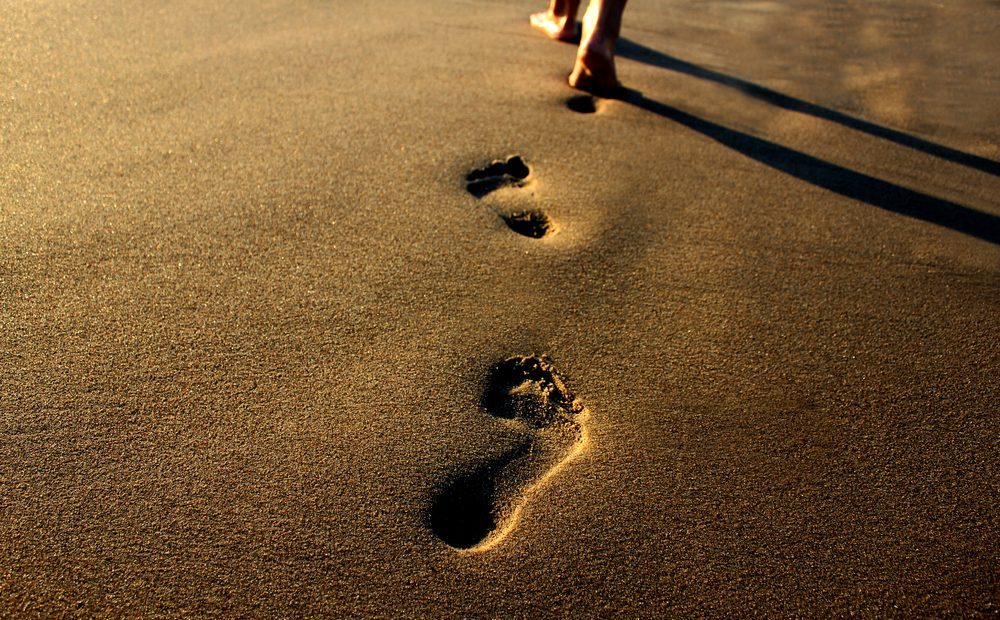Rest is what replenishes our physical, mental and emotional resources. Yet so often we’re stretching ourselves too thinly and not leaving enough room for the play and experimentation that makes our creative lives flourish.
External pressures – deadlines, long hours, financial insecurity or low pay, family commitments – can squeeze out rest. So can internal pressures: self-criticism, anxiety, high ideals and expectations. Our own mind not allowing us to take a break.
In a work-dominated culture, where being busy is equated with worth, rest can become something we hope to get to one day when we have more time.
In the US, Tricia Hersey founded the Nap Ministry to attend to the rest deprived. The Nap Bishop invites people to come together for communal naps and daydreaming events to counter the effects of the ‘grind culture that is pushing their bodies to brink of destruction’.
For others it’s about everyday practice. Petra Kalive, Associate Director at Melbourne Theatre Company, starts her day getting ‘two small humans’ off to school and childcare and then she ‘works fast and hard’ at the theatre.
‘My stage manager has to keep me honest when it comes to breaks,’ Kalive said.
Along with cycling to the theatre and yoga, she keeps her rest reserves topped up with a daily hour of trashy TV or reading something easy and letting her mind wander.
The director of Laurinda recognises the warning signs when she’s not getting enough rest.
‘I find it very hard to find my words; that’s one of the key indicators that I need rest. Also coming off a show I often feel a different kind of tired from the regular end-of-day exhaustion. It’s like a whole-body heaviness.’
It’s then that Kalive turns to active rest. ‘I know that sounds counterintuitive but doing something outdoors – going for a walk or a run to exhaust my body in a different way – I call it defragging – it’s completely outside of my normal, habitual way of being in the world.
‘As soon as I’ve reset a little bit, suddenly those ideas come flooding in again. It is quite extraordinary,’ she said.
Why you need rest
Sarah Borg, clinical psychologist at Green Room Psychology, explains every human brain needs rest.
‘If we’re not allowing ourselves to obtain adequate restful states then our brain just can’t keep doing what it needs to do,’ explained Borg.
That’s when people can burn out or find themselves obsessing, catastrophising or being self-critical.
Crucially, for creative people rest allows the brain to be in default mode, a state where thinking is more flexible and novel.
‘That’s when those lightbulb moments come, when we think of that new association, or we come up with that solution that we hadn’t thought of before,’ said Borg.
Read the signs
The subtle signs of a rest deficit are as individual as we are. Some people may notice changes in their sleep patterns or their thinking. They may find it hard to let go of things or they may feel vague. Their thoughts could be racing or, conversely, slowed down.
‘For others it’s to do with their emotions,’ said Borg. For example, they feel more impatient or easily irritated.
Recognise what is restful for you
What feels restful is different from person to person, said Borg. It may be a cuddle with a pet, a walk in the sunshine or rock-climbing, switching off notifications or putting boundaries on emails, or spending time on another creative pursuit or playing with LEGO.
It’s important to have a plan when you notice you need more rest. When Borg feels weepy or indecisive, she takes a nap.
‘For some people it may be having a nap or really lowering the information that’s going into their brain. For other people it may be more of a flow state or a play state – the idea of allowing our brain to switch off from external stimuli, to switch off from the outside world, to switch off from being task-focused and allow ourselves to be in a different state.’
Read: Why creative people are more prone to depression
In Alex Soojung-Kim Pang’s book Rest he concludes the most restorative forms of rest are active, not passive.
Reaching the flow state is about finding a balance between skill and challenge. One outback artist practises his golf swing when he’s short on creative ideas or nutting out a painting. A Newcastle ceramicist finds cooking is her avenue into the flow state.
If the idea of play appeals, set some rules of engagement.
What are you going to play with? Is it a particular modality or are you going to play a game? Where are you going to do it and how long are you going to do it for?
It may also mean homing in on the specific rest you need. In her TEDx Atlanta talk, physician, researcher and author Saundra Dalton-Smith identified seven types of rest: physical, mental, emotional, sensory, creative, social and spiritual.
Sensory rest could come from switching off your phone and moving away from screens for a few minutes, for instance.
If you are feeling overwhelmed and don’t have a plan for restorative rest, begin with a check-in on your biological needs – when was the last time you slept, ate a nutritious meal, drank water, went outside and took some deep breaths? Then add in things that bring you comfort, joy or pleasure.
‘It doesn’t have to be carving out a whole weekend to get away; it can just be something little each day,’ said Borg.
Read: How art helps us develop healthier minds
Deone Zanotto’s go-to is twice-daily meditation. The actor, dancer and singer discovered its benefits after being offered a swing role in A Chorus Line on Broadway more than 15 years ago.
It was a role she almost turned down. ‘The stress of swinging really got to me the first time I’d done it,’ she explained. ‘I knew A Chorus Line was going to be huge because you were understudying four lead roles not just the ensemble.’
Losing sleep and feeling highly stressed, she signed up to a meditation course and it was a game-changer for her. ‘You come out of it feeling so refreshed.’
Now, as the founder of an organisation called Performance Based Meditation, Zanotto runs transcendence meditation courses and advocates it being a daily practice – and not just for the stressed out.
‘You make the time to rest and meditate, not just so you can function on a base level but so you can flourish and really live life,’ she said.
‘Conversations you have are deeper, whatever you’re researching, or working on, or developing, or creating – it’s like floating downstream. It just happens in such a fluid, organic way. That’s why we need to keep doing it as maintenance.’
Cultural shift
It all helps build a culture of rest and work acting in partnership, according to Soojung-Kim Pang.
It’s a culture Kalive wants to encourage at the MTC, by supporting the ‘slow undoing’ of some of the ingrained assumptions about work and rest in the arts. That means resisting pressure to rehearse six days a week and allowing cast and crew weekends to reset and let ideas percolate.
‘I don’t think we work well from a place of exhaustion, and I think in the arts we’re taught to do that.’
Kalive sees the impact of that shift in the stressful run-up to opening night. ‘People don’t fight, there are fewer tears,’ she said. ‘There’s less emotional stuff to carry through that week as well because people have time and space and brain capacity to manage their own stuff.’





